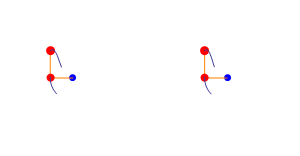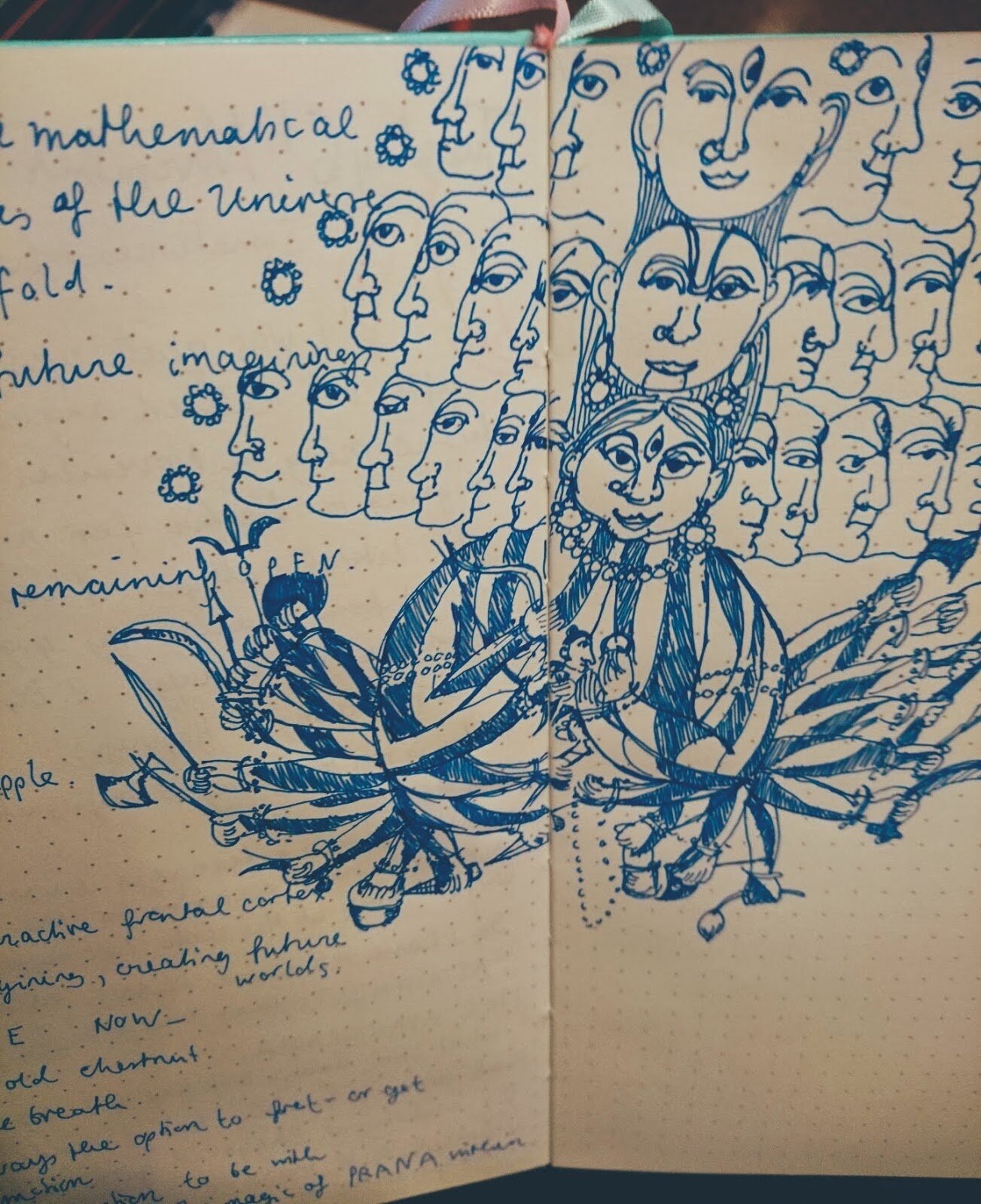The World is Too Big; on perfectionism, disappointment, and chaos.
It’s my birthday next week.
Since I was wee my birthday has always been a big deal for me and even though I’m creeping through my thirties now, I still look forward to it like a small child.
Every year I inevitably make a huge effort to plan the most perfect day ever. This year, even since January, I planned to go to Berlin for the weekend.
Alas the way things have turned out, this is not to be.
However since I am thankfully not 5 years old but 32 (and 359 days!) instead of getting distraught about my crushed dreams, I have used this as an opportunity to ponder the largeness of the world and how our best laid plans gang aft-a-gley.(to quote our local bard)
I am good at organising things and love to do so - I regularly come up with amazing plans for the perfect occasion and work like a dervish to make it a reality. But what often happens is I fall in love with the idea of my perfect moment, and if for some reason not everything turns out as I planned, I end up crumpled and dismayed.

The human ability to model the future, located in the prefrontal cortex of the brain, is what gives us our advantage over other animals. It helps us avoid danger, make plans, set goals, and make things happen. But what happens when we become too good at picturing the future, and our obsession with our imagined worlds sabotages our life in the real world?

Yoga has a lot to teach us about this. The problem is not exactly the ability to plan and imagine, but rather our emotional attachment to these mental creations.
Two of the obstacles laid out in chapter two of the Yoga Sutras are raga, attachment to pleasure, and dvesha, aversion to pain. Surely, you would think, it’s ok to be attracted to nice stuff and to want to avoid the unpleasant? The problem is that our ideas about what is good and bad are not always accurate, and our inclinations and aversions can end up controlling us and preventing us from seeing the world as it really is.
Even nice stuff is harmful if we’re too attached - we just want more and more of it. Or, we start to have unrealistically high expectations, and when they are inevitably not met, that bums us out too. (“maybe I’ll go to Berlin next year, sigh..”)
To one of discrimination, everything is painful indeed, due to its consequences: the anxiety and fear over losing what is gained; the resulting impressions left in the mind to create renewed cravings; and the conflict among the activities of the gunas, which control the mind. YS II.15
Our attachments become a trap - they grow out of each other, and the more we have, the less freedom we have to participate in the world in front of us - constantly bummed out that the spectre we conjured up hasn’t delivered on our fickle desires.
The whole practice of yoga is there to help us claw our way out of this snare.
How fresh and how clear the world will suddenly appear, once we can rid ourselves of our attachments! Dispassion to both pain and pleasure, we can bask in the immediacy of pure experience!
Content to take whatever chance may bring his way,
Surmounting all dualities, knowing no envy,
The same in failure and success,
Though working still, [the yogi] is not bound.
BGIV.22
Through inner work, meditation, study, some blood, sweat, and tears, I have started to let go of some of my own attachments. Let me emphasise the ‘start’ part of that - because this is hard. And you have to take it a bit at a time.. At first you tackle the nasty stuff - that’s much easier to get rid of. But when you come to the things you like, suddenly it’s much more difficult.
I can’t help but feel a bit melancholy at the idea of letting go of attachments to my favourite things, my dreams and my plans - and so it’s clear to me that deep down the raga is still working at full force.
However, instead of mourning the loss of what I think I want, which is unlikely to ever allow me to let it go - I’m trying to take a new perspective.

The impulse to organise, plan, control, comes from a deterministic way of seeing the world. Newton thought that the world worked like a clockwork machine, ticking away to its correct rhythm, where, if you knew all the factors, you’d be able to work out exactly what would happen. Similarly if I get the venue, invite all the people, bake all the cakes, make a smashing playlist - everything must turn out perfect, right?
But that’s not how it goes.
There’s a Zen koan called ‘Why can’t the tail pass through’ - A water buffalo passes through a window. The head gets through, the horns get through, the legs gets through, but the tail can’t get through. Why can’t the tail get through?? If everything else can get through how come the tail doesn’t, what is up with that?
Koans are delightfully frustrating puzzles that encourage us to sit with the paradoxes of embodied living. And here it is - even if you put in 100% effort, you don’t quite get the perfect result, there’s always something that you can’t foresee. Even if you try to know everything as well as you possibly can, there’s always going to be something missing..

Chaos theory describes how miniscule, almost undetectable variations can make apparently identical conditions vary wildly over time. Or in other words, there is always going to be a snag that means things don’t turn out just as you planned.
There are too many billions and trillions of factors at play in the world for anything to ever be truly predictable - and because we are mere mortals, there is no way that we can ever know even a small part of them, we simply don’t have enough information.
In the Bhagavad Gita, Prince Arjuna looks over the battlefield and sees that he must fight against his own kinsmen. He protests, arguing (not unreasonably!) that this goes against his morals, his principles, his understanding of the world.
Throughout the Gita the all powerful Krishna explains to Arjuna that there is no way he can actually fathom what is at stake - he must fulfil his dharma and play out his role in the big picture even if he can’t see it. While we worry and fret from our tiny view of things, from the vantage point that spans the whole universe our own concerns are revealed as trivial.

For a thousand ages lasts
One day of Brahma,
And for a thousand ages one such night:
This knowing, men will know what is meant by day and night.
At the day’s dawning all things manifest
Spring forth from the Unmanifest;
And then at nightfall they dissolve again
In that same mystery surnamed ‘Unmanifest’.
BG VIII.17-18
Finally in order to prove his point Krishna reveals his unfathomably huge and multifarious true nature to Arjuna, ‘As One and yet as Manifold, With face turned every way, in many a guise’ - to blow his socks off and let him see just how massive, mindblowing, and huge the world really is - to put his dilemma into perspective.
Every single thing that we think we comprehend conceals within itself unknowable layers of complexity. The mathematical probabilities of the world too multifarious to be calculated by any computer (yet, anyway) - and the myriad ways of experiencing the world through varying perspectives, combinations, moods..

When we stamp our foot and decide, ‘nope, that’s how it’s going to be, and that’s that!’ we take this vast ocean of potentiality that’s out there, and limit it to one tiny possible outcome.
More and more I am starting to see that my over-controlling planning approach is really limiting things for me. Why am I getting upset about one tiny particular version of events not coming to pass when there are so so many other possibilities out there!
How wonderful things might be if I loosen my grip on my attachments, even on the positives.
Surely my puny brain can never come up with anything as marvellous as there is out there in the vastness of the constantly fluctuating universe? By letting go I create space for new and amazing possibilities, instead of squeezing the world into my own constrained itinerary of events.
I think now I’m going to open my mind and my arms and see what the world is going to offer me as a birthday surprise!

